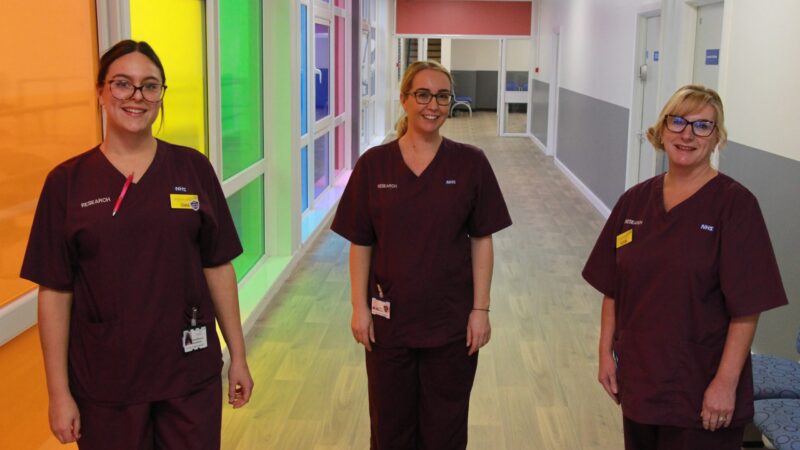
Women in Teesside are joining the search to “help find answers for the future” to early diagnosis of breast cancer – thanks to our research team.
Our research service is recruiting a high number of women every week into the trial.
The so-called EMBED study was set up by Cambridge University with support from Cancer Research UK. It is searching for blood-markers to help lead to an earlier detection of breast cancer.
The Trust’s specialist cancer research team says it has had strong support from women wanting to be a part of the study.
Lynda Poole is a research nurse and clinical trial co-ordinator. She said: “We are proud to be a part of a study which could make a real difference to so many women and their loved ones.
“Circulating tumour DNA (ctDNA) has been found to be an important blood marker in detecting breast cancer.
“Being able to detect small amounts of ctDNA could be an important step for an earlier diagnosis of the disease in the future.
“The study would like to collect blood samples from women with an increased risk of breast cancer, to give us a better chance of identifying the earliest point at which this marker can be detected in the blood.”
Gala Stancev Stevanovic, clinical trials assistant, said: “So many women we have already spoken to have decided to take part. They want to help find answers for the future.
“It really is a selfless act. These women will not personally benefit from the study. But they could help generations of women in the future have earlier diagnosis and treatment.”
Recruiting into the research trial
The research team have established strong working links with a range of department. In particular, the Trust’s breast unit and phlebotomy services.
Helen Wardle, clinical trials practitioner, added: “Our input to this trial has already been very successful. And that is thanks to the amazing support we have had from staff.
“The breast unit have worked with us to help us capture women attending yearly follow-up mammogram appointments due to family history or previous breast cancer. And these women are being approached by research team to ask about their involvement in the trial.
“The phlebotomy team have also played an important role helping create a set of steps to follow to avoid patients having to return to the hospital more than once a year.”
The bespoke model the team created has even received praise from the team running the study at Cambridge University. They wrote the following to the team: “The recruitment model you have adopted is the most successful by far!
“To be able to consent and obtain the blood sample on the same day means that we don’t lose anyone and makes our lives so much easier! Thank you.”
Helen added: “We want to thank everyone involved in research at our Trust as well as to every woman who has chosen to be involved so far.”